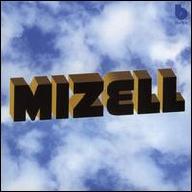Upon graduating Howard, Larry Mizell accepted an engineering position with Grumman Aerospace while Fonce and Perren relocated to Los Angeles, both landing with the short-lived independent label LARCO. A mutual friend soon put Fonce in contact with Motown producer Deke Richards, and in 1969 he and Perren were signed to the label as staff songwriters. Together with Richards and Motown chief Berry Gordy Jr., they formed the writing and production team dubbed the Corporation--after writing a proposed Gladys Knight and the Pips song titled "I Wanna Be Free," Gordy suggested they rework the song for Motown's latest signing, a sibling group from Gary, Indiana dubbed the Jackson 5. Retitled "I Want You Back," the Jackson 5 version remains one of the signature Motown classics, rocketing the group to international fame; the Corporation also emerged as reliable hitmakers, creating the Jacksons' smash follow-ups "ABC" and "The Love You Save" as well as Martha Reeves and the Vandellas' 1971's effort "Bless You." Meanwhile, after earning his master's degree from New York University, Larry resigned from Grumman and finally joined his brother in L.A., working as a session player on a handful of Corporation-helmed projects. But despite their success, Mizell and Perren both grew disenchanted with Motown--despite Gordy's promises, a proposed Corporation LP never materialized, so when Donald Byrd traveled to the West Coast to work on his latest Blue Note LP, 1972's Ethiopian Knights, Fonce leaped at the opportunity to contribute to the session. He and Larry also acquired an ARP Soloist synthesizer and began composing demo material, eventually founding their own production concern, Sky High.
Byrd's 1973 LP Black Byrd was the first official Sky High effort--the best-selling Blue Note release in the company's long and storied history, it earned a Grammy nomination and immediately established the Mizells' signature approach to jazz, which drew heavily on the sleek sensibility now dominating mainstream R&B. In addition to their work in the production booth, the siblings regularly played on Sky High sessions as well, with Fonce typically contributing clavinet and trumpet while Larry added piano and synthesizer--they also arranged and performed the distinctive harmony vocals that remain a trademark of their sound. The Mizells' acknowledged masterpiece, Byrd's concept album Street Lady, followed in late 1973--flutist Bobbi Humphrey's landmark Blacks and Blues was cut just weeks later, and the siblings maintained their frenetic creative pace across much of the decade, helming sessions including Johnny Hammond's 1974 Salvation label effort Gambler's Life, Byrd's 1975 date Places and Spaces and Gary Bartz's 1977 release Music Is My Sanctuary. The Mizells also crossed back into commercial R&B with the 1978 release of A Taste of Honey's self-titled debut LP, notching the disco classic "Boogie Oogie Oogie." Although the brothers signed their own recording deal with Warner Bros., they preferred the anonymity of writing and producing, and with the dawn of 1980s the Mizells entered an extended creative hiatus that continues to this day. Their classic productions remain a fertile source of hip-hop samples, however, and in 2005 Blue Note released the compilation Mizell Brothers at Blue Note Records: 1973 to 1977 and Beyond. [Special thanks to Ronnie Reese, who profiled the Mizell Brothers in the February/March 2006 issue of Wax Poetics and his piece was the first place where much of this biographical information was first published.] ~ Jason Ankeny, Rovi












